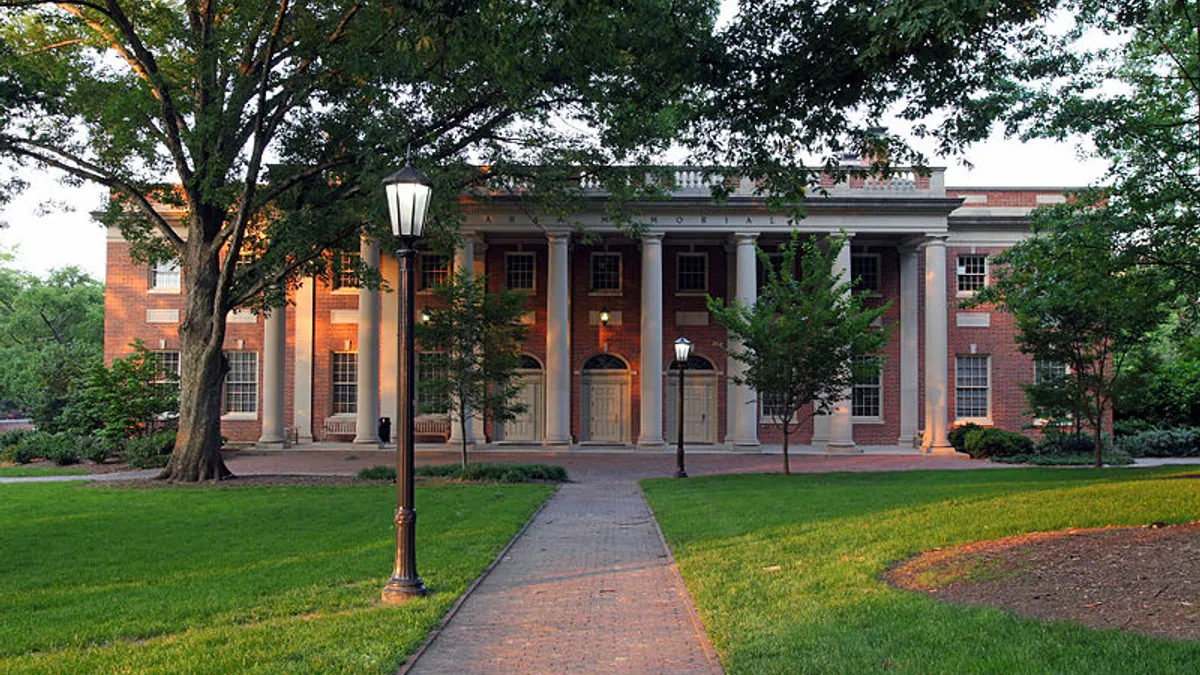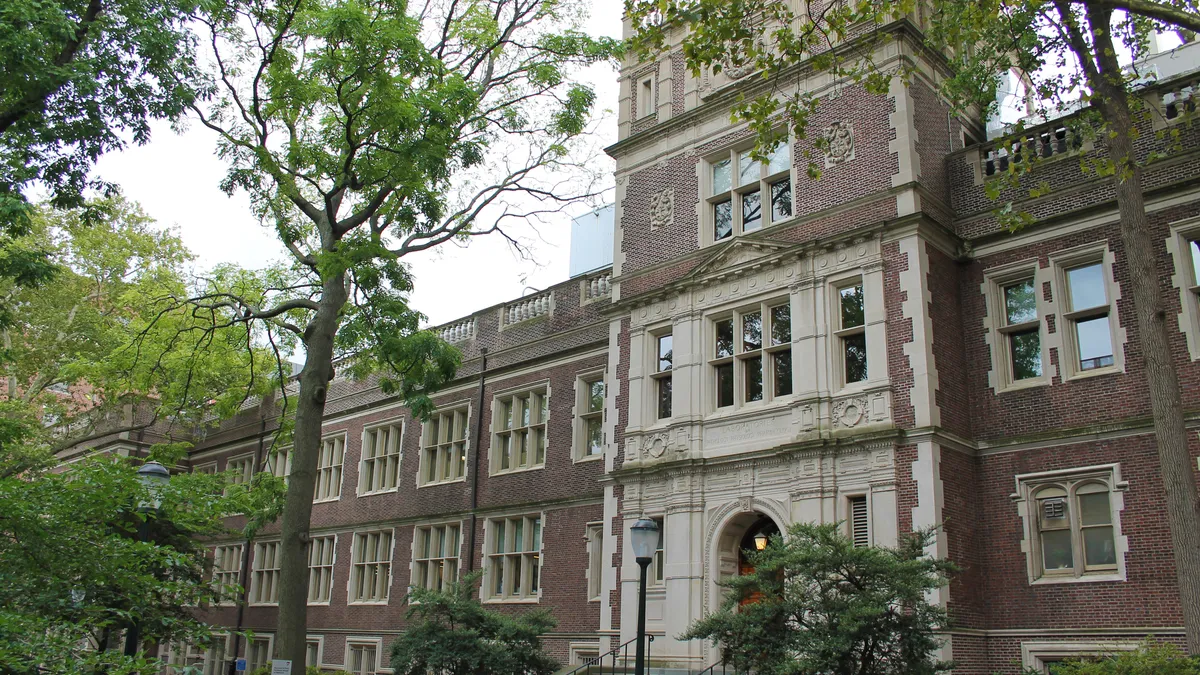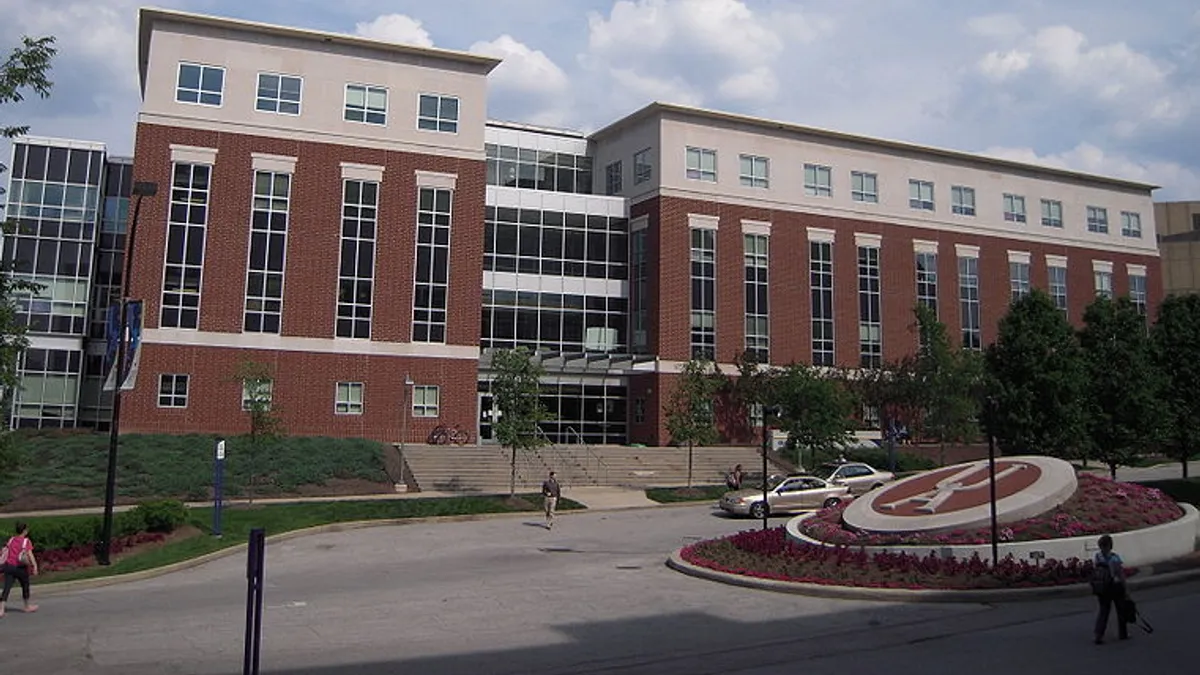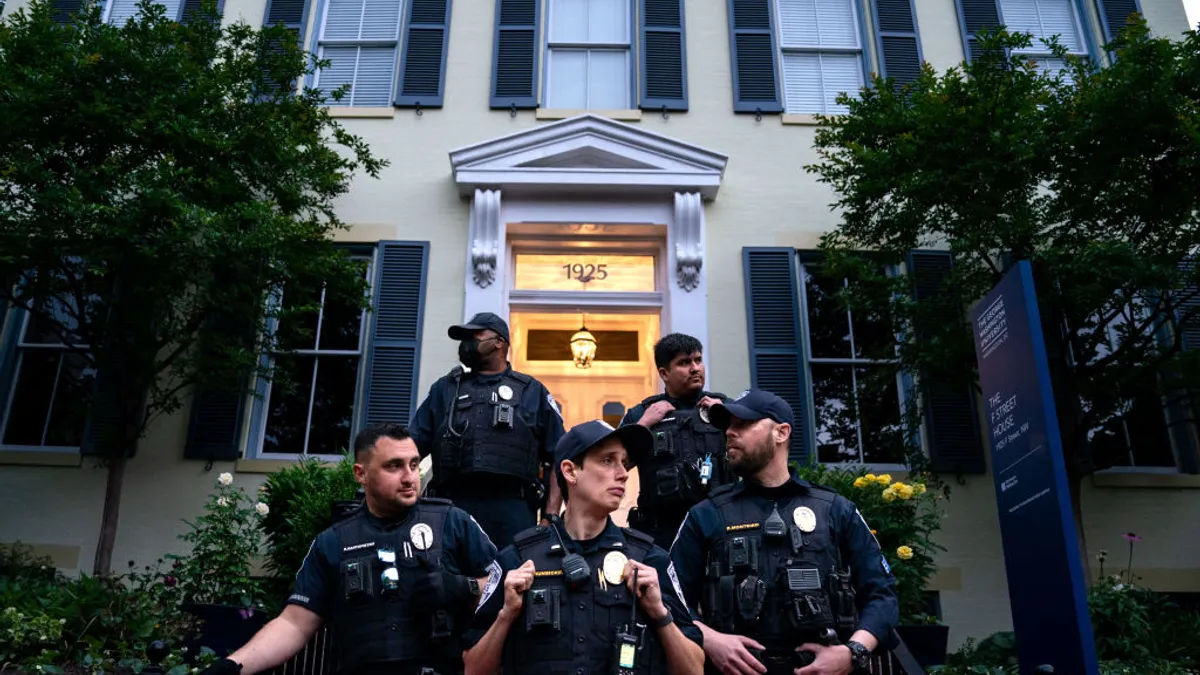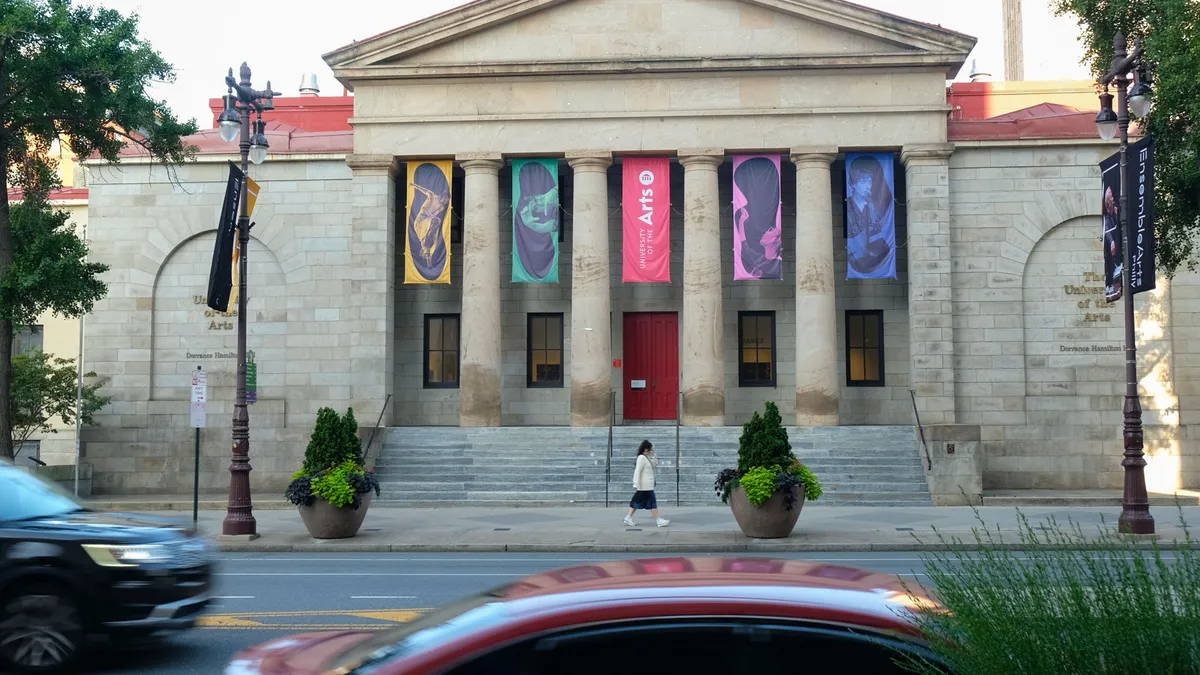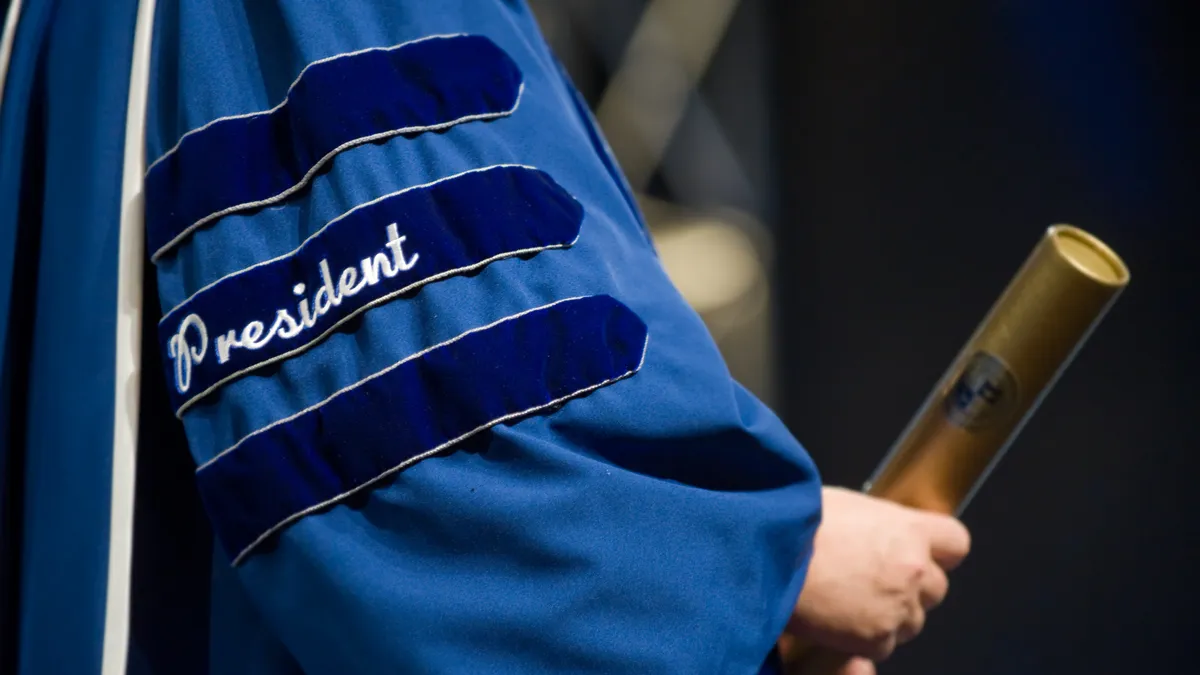It's a common refrain among colleges in the age of COVID-19: they're working closely with public health officials to help stem the coronavirus and preserve campus safety.
The University of North Carolina at Chapel Hill is no exception, where administrators said they have been in regular contact with the local health department in the run-up to relaunching in-person classes for the coming academic year.
That's why it came as a surprise to some on the state's flagship campus when university leadership declined to follow advice from the Orange County Health Department. In a letter late last month, it advised UNC-Chapel Hill to start the first five weeks of the year online, then evaluate the feasibility of face-to-face instruction. The department's health director cited a surge of verified cases, particularly among young people, and raised concerns about the area's reliance on public transportation and its potential to spread the virus.
The university's chancellor, Kevin Guskiewicz, said in a public statement Wednesday that he took the recommendation "very seriously." Officials had already decided to scale back how much campus housing was available and add more hybrid courses, which Guskiewicz said aligned with the department's guidance. But the university would press on with the reopening plan.
An in-person fall was already unpopular in many circles. In late July, tenured faculty implored undergraduates to remain home if they were able.
The decision to move forward is rooted in the UNC System governing body's desire to hold the decision-making power on campus reopenings, some higher education policy experts say. The board of governors has made clear that system heads, not campus chancellors, will have the final say.
But the kerfuffle illustrates more broadly the disconnect between colleges' words and actions when it comes to difficult decisions concerning the virus — and what other factors stand to override public health guidance.
"One of the things I've wondered about since the beginning is how much conversation and coordination is happening between public health officials and college leaders, and how much it makes a difference," said Kevin McClure, a higher education professor at UNC-Wilmington.
UNC-Chapel Hill's fall roadmap
UNC-Chapel Hill started its fall planning like many other colleges. In May, it said it anticipated a "second wave" of the virus heading into the fall and winter and crafted a proposal accounting for it. The university would start the semester early, on Aug. 10, and bring some students, instructors and staff back in phases and ask they adhere to the now-typical safety guidelines: frequent hand washing, social distancing, and mask wearing in public spaces.
Reality has not matched the university's expectations. There was no second round of the virus, but rather confirmed cases began skyrocketing in many states as some rushed to reopen businesses and end stay-at-home orders. The result: more than 160,000 verified deaths in the U.S. as of Friday afternoon, and more than 1,300 recorded cases and 46 deaths in Orange County, according to data from Johns Hopkins University.
The county health director, Quintana Stewart, referenced the case numbers in the letter to Guskiewicz and other campus officials. Stewart also urged them to limit campus housing to only "at-risk" students.
"We do not offer this recommendation lightly, and we recognize that there will be educational, economic, and logistical challenges," Stewart wrote. "(The department) is providing this recommendation from the public health perspective with the best information we have at the current time during these extraordinary circumstances."
Yet administrators doubled down, much to the chagrin of some faculty and government officials. A quartet of local politicians called on the university in a letter this month to follow the health department's guidance "to the fullest extent possible."
Faculty were also apparently not immediately informed of the recommendation, according to local news website NC Policy Watch, which obtained an email sent from Mimi Chapman, UNC-Chapel Hill faculty chair, calling the omission "a serious breach of trust."
Chapman, as well as spokespeople for the university and system, did not respond to requests for comment by publication time.
But if Guskiewicz wanted to change course and offer virtual classes in the fall, the university very likely wouldn't have been able. As NC Policy Watch first reported, UNC board of governors chair Randy Ramsey told the system's 17 chancellors last month that those decisions rest with the new system president and the board.
Board members want campuses to reopen, McClure said. He noted that Guskiewicz said in his statement that he checked in with the system, which advised him to "stay the course."
"To me, you have to read between the lines there," McClure said.
A powerful board and other complications
Ramsey also instructed the chancellors last month to develop scenarios in which their budgets were reduced by 25% and 50% to account for possible revenue downturns. The exercise was a "power move" by the board, said Chris Marsicano, an educational studies professor at Davidson College, in North Carolina, who also tracks the state's political matters.
UNC's board of governors is well known for being heavily politicized and working in lockstep with Republican lawmakers. Unusually, the entire body is appointed by the state legislature, which is dominated by conservatives.
While individual campuses have a high degree of autonomy in some public university systems, those comprising UNC do not. And the system's close ties to lawmakers makes it subject to their whims. This can work to the system's benefit in some cases, as it can easily coordinate and make decisions as a unit, McClure said.
But the coronavirus is affecting UNC campuses differently because of variation in their sizes and resources, McClure said. As a result, inequities can be exacerbated when colleges try to pay for potentially expensive safety precautions, such as testing.
Fears of the virus spreading around UNC-Chapel Hill are particularly acute. Reports of young people ignoring health guidance have already come to light. Behavioral experts have said they doubt college students will be able to follow safety measures to the extent officials want.
That's part of the reason campuses should steer toward online classes, said Shweta Bansal, a Georgetown University biology professor who has written on the topic of reopening campuses this fall.
Bansal said the arguments for reopening — giving students the campus experience and dodging revenue shortfalls — haven't persuaded her it's necessary.
Without a robust federal strategy for handling the virus, guidance from local health departments is particularly important, she said. Institutions should listen to health officials because they're also concerned with making sure the surrounding community doesn't fall ill.
"It's absolutely necessary for all of us ... to be heeding those guidelines," Bansal said.
The American College Health Association, which has released its own guidelines on addressing the virus, said in a statement emailed to Education Dive that relationships between colleges and public health departments are "critical" to the health and safety of campuses and their neighbors.
It urges colleges to forge those ties "to determine what policies and protocols will best meet the campus' specific needs."



